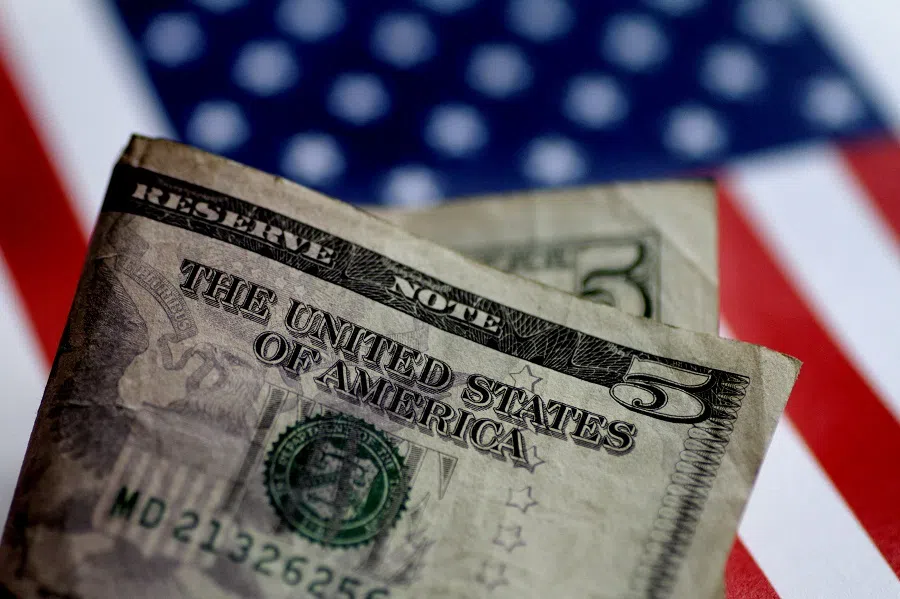Talk of a US-China war: How frightening?
Rhetoric by the Chinese elite of an America in decline has US political circles guessing at China's intentions. In truth, even if talk of "decoupling" or "de-risking" from China is on the rise, this is still insufficient cause for war. Echo chambers amplifying the issue is the last thing both countries need.

In March 2023, with the number of air routes between China and the US at 6% of that in March 2019, it is understandable for commentary from the political capitals of the two countries to carry exceptionally higher weight than usual. A seasoned writer in the Financial Times conveys that "many influential people [in Washington] seem to think that a US-China war is not only possible but probable". The same writer goes on to pair it with a translation of an observation by Chinese Foreign Minister Qin Gang: "if the US side does not put on the brakes and continues down the wrong path... confrontation and conflict".
As "conflict" and "war" are synonymous in English, on the surface, it does seem that "influential people" in both Beijing and Washington are on the same wavelength about what is to come between their two countries. But it is just as useful to note that the Chinese-language equivalents have more to do with momentary inner sentiments than material action plans. Language translation is an art and requires care in thinking before straightforward pairing.
Empty talk and agonising notions
Regardless, there has been a slew of commentaries expressing alarm about the obvious lack of formal interactions between the two governments and societies. For example, another piece in the Financial Times, looking at the economic side of the relationship, concludes that "the era of strategic confrontation [between the US and China] we have entered is frightening". Adding to the alarm is a subheading in a blog by an investment banker who recently travelled to China: "The United States and China are on the brink of war and are beyond the ability to talk." The question left to answer, then, can be this: if not war or military conflict, is there reason to envision a less confrontational - defined as both intent and action here - prospect?
When those thinkers ground their purview with a sense of history, they are tempted to conclude that China wants revenge on the West for historical wrongs beginning with the two Opium Wars...

My basic answer is this: no, talk of war between the US and China is neither new nor enlightening.
First, a good deal of American and what many American security elites profess to be Western anxiety about China stems from their long and agonising search for a satisfying answer to the question: "What does China want?" Their search for answers has a mirror effect and understandably so: China wants wealth and power, just like the US (and the rest of the West).
When those thinkers ground their purview with a sense of history, they are tempted to conclude that China wants revenge on the West for historical wrongs beginning with the two Opium Wars in the middle of the 19th century. Now that China's wealth has grown, again, in that conceptual mirror, it naturally would want to take on the West, including through military means if it can afford to.
That agony, in part, helps put in perspective another analysis in Foreign Affairs magazine, also in March, that says the US is "still the overriding unipolar power". The article adds: "Militarily, meanwhile, most analysts still see China as far from being a global peer of the United States, despite the rapid modernization of Chinese forces." If anything, talk of a petroyuan that displaces the petrodollar is viewed as wildly premature as well. As a recent article notes: "The fate of the dollar lies in Washington, not Beijing."

Such counter observations, ironically, may not help put the large question to rest as believers in the inevitability of military clash between the two counties will be tempted to argue that it is the trend that calls for vigilance. That agony is unlikely to end soon.
Impressions of China's intentions
Second, does China intend to take on the US? Based on my first observation, it is likely that my words will fall on deaf ears. After all, as I learned on my two-week trip to Washington DC and New York in January, my American colleagues (mostly economists and investors) almost invariably wanted to know if Chinese elites have "America in decline" deep in their minds. Even Henry Kissinger, who granted an hour-long audience with my group, opined on the issue of intent.
... it is advisable for Chinese elites to refrain from reiterating ill-substantiated claims about America and other societies, for China's own sake.

No, America is not in decline. That line of rhetoric is, instead, a reflection of America's devotion to staying competitive in the world. In any case, it is a product of American thinking that dates back to at least the 1950s. As we were told, a seemingly fractured partisan Congress passed legislation to promote infrastructure, science and technology and further industrialisation under the Biden administration. Written into those legislations are mechanisms of continued funding for the next decade to come and, with their implementation comes a path dependency for government and market interactions for an even longer period. America does possess the wealth and policy consensus to achieve what it aims at.
Talk of "East on the rise and West in decline" among some Chinese quarters has gained a powerful impact on elite thinking in the US. This is regrettable, as it is certainly not the only broad stroke observation of world affairs on the lips of Chinese elites. Still, it is advisable for Chinese elites to refrain from reiterating ill-substantiated claims about America and other societies, for China's own sake.
...one must not lose sight of the actual convergence in American and Chinese approaches to governance: focus on building up a more dynamic society rather than contemplating war as a solution...
Insufficient cause for war
This leads me to the last and final point. Is sustained US action to pursue "decoupling" or "de-risking" from China a cause for war? Certainly not.
Two-way investment between the Chinese and American markets are low throughout history, in absolute and percentage terms for both sides. Product trade is the thrust of the economic relationship between the two societies. Both also possess the choice to associate with a broad base of customers in trading. The search for a solution, as both countries have done, is to pursue domestic vitality to stay competitive in the world's product and supply chains.

Before and after the renewed war between Russia and Ukraine in February 2022, there has been no shortage of pundits in the US who argue that Russia is over and the West better not lose sight of China. That produced a vicious echo chamber effect on the issue of security (a notion that always requires clarification in context and substance) at security forums, including in third countries.
But one must not lose sight of the actual convergence in American and Chinese approaches to governance: focus on building up a more dynamic society rather than contemplating war as a solution to present-day challenges. That's what the populations of respective American and Chinese societies ask of their elites and government decision-makers.



![[Big read] When the Arctic opens, what happens to Singapore?](https://cassette.sphdigital.com.sg/image/thinkchina/da65edebca34645c711c55e83e9877109b3c53847ebb1305573974651df1d13a)
![[Video] George Yeo: America’s deep pain — and why China won’t colonise](https://cassette.sphdigital.com.sg/image/thinkchina/15083e45d96c12390bdea6af2daf19fd9fcd875aa44a0f92796f34e3dad561cc)
